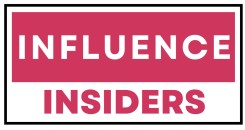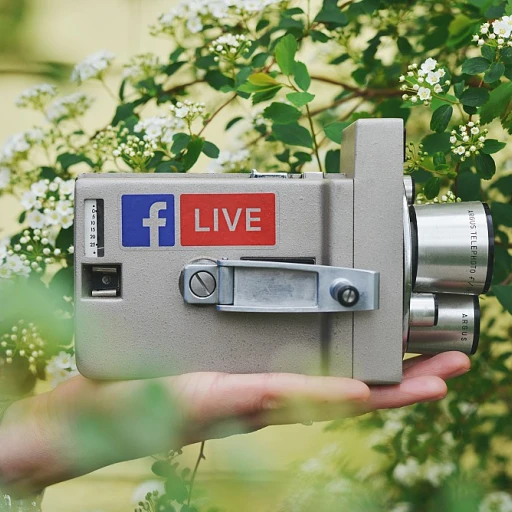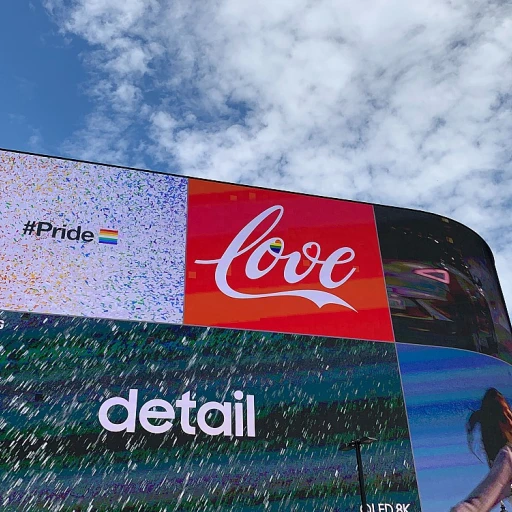Sustainable Chic: The Rise of Eco-Friendly Fashion Influence
Embracing the Green Wave in Fashion Blogging
The fashion industry has witnessed a significant transformation with the 'Green Wave.' Influencers are now harnessing their platforms to promote eco-friendly fashion, emphasizing sustainable living through their fashion choices. In this era of environmental consciousness, 'Sustainable Chic' has evolved from a niche trend to a mainstream movement, with influencers leading the charge in educating and inspiring their audiences to invest in ethical fashion. An indicative statistic, according to the Global Fashion Agenda, is that fashion’s sustainability pulse has improved by 6% since 2017, a change fueled by social media campaigns and green influencers promoting eco-friendly alternatives.
The Fabric of Sustainable Influence
One remarkable aspect of sustainable fashion is the material story. Influencers adept at story-telling are weaving narratives around the origins of materials like organic cotton, recycled polyester, and Tencel. These fabric tales resonate with a growing demographic of environmentally savvy consumers who are not just looking for style but also substance in the clothing they wear. The 'Fabric of Sustainable Influence' is not just a metaphor but a literal component of the influencer's toolkit. Designers such as Stella McCartney, who prioritize sustainability, are often highlighted by influencers as prime examples of how the industry can operate ethically without sacrificing style.
Championing the Ethical Dimension in Fashion
As brand ambassadors for ethical fashion, influencers shoulder a significant responsibility. They champion the ethical dimension in the industry by carefully selecting collaborations with brands that align with their values. This alignment extends beyond mere aesthetics—it's about conveying a powerful message that fashion can be both beautiful and beneficial to the planet. Posts featuring ethical brands, outfit ideas using second-hand or upcycled clothing, and insights into the impacts of the fast fashion industry are common on their feeds. These influencers often become role models, urging followers to consider the lifecycle of their wardrobes.
Analyzing the Impact of Sustainable Fashion Influencers
The impact of influencers promoting sustainable fashion is measurable. Engagement rates, follower growth, and hashtag trends offer a glimpse into how deeply the message of eco-friendly fashion is resonating with audiences. By highlighting specific benefits such as waste reduction, carbon footprint minimization, and ethical labor practices, these influencers are not just shaping purchasing behaviors but are also fostering a community of conscious consumers. A Nielsen report revealed that 73% of Millennial respondents were willing to spend more on a product if it comes from a sustainable or socially conscious brand, underlining the importance of influencers in shaping these consumer values.
Transparency in Beauty: The Shift to Candid Product Stories
The Evolution towards Transparency in the Beauty Sphere
The beauty industry is experiencing a pivotal shift as consumers demand transparency in their products. This movement challenges companies to reveal the complete story behind their offerings - from ingredient sourcing to ethical production practices. It's a response to the increasing awareness and desire for sustainable beauty solutions, pushing influencers to adopt and advocate for these transparent narratives. As eco-friendly fashion influence gains momentum, so does the expectation for honest product claims within beauty.
The Emergence of Candid Beauty Storytelling
Traditionally, beauty marketing has been shrouded in mystery and over-exaggeration. However, the ethical fashion and beauty influence is compelling influencers to engage in candid storytelling. Followers are seeking real stories about the efficacy and background of products. Beauty influencers, therefore, are becoming pivotal connectors, providing their audiences with behind-the-scenes glimpses and genuine experiences. This new approach has given rise to a niche of influencers who specialize in unveiling the truth behind beauty brands, fostering a relationship built on trust and integrity.
Case Studies: Truth in Beauty Branding
Prominent ethical beauty influencers are setting high standards by partnering with brands that prioritize transparency. By sharing in-depth reviews, discussing the origin of ingredients, and highlighting the social and environmental impact, they harness their influence for positive change. For example, consider an influencer who meticulously documents their visit to an organic farm where ingredients are sourced or one who interviews workers to discuss fair labor practices. These narratives not only increase consumer awareness but also drive the demand for ethical products, creating a ripple effect towards a more conscious industry.
The Metrics of Trust: Engaging with Honest Content
Analyzing engagement metrics is crucial in understanding the impact of transparent beauty communication. Engagement rates, such as likes, comments, and shares, signify that the audience resonates with the message. Moreover, the effectiveness of ethical influence can be gauged by the increase in brand mentions, the growth of followers who prioritize sustainability, and the uptick in user-generated content orbiting around ethical use-cases. These numbers offer a window into the consumer mindset, emphasizing the value they place on ethical considerations and the trust they place in influencers who champion these causes.
Social Media's Ethical Brand Ambassadors: Impact and Influence
The Power of Conscious Content Creators
In the digital age, social media influencers have become pivotal in shaping consumer behavior. The allure of ethical brands is amplified when endorsed by ethical brand ambassadors who meticulously cultivate trust and authenticity with their audiences. These ambassadors set the trend for mindful consumption, showcasing how style and sustainability can go hand-in-hand.
Statistics underscore the sway of influencers in ethical fashion and beauty niches. According to a 2021 survey, 61% of consumers are likely to research a brand when recommended by an influencer, confirming the power of influence these social media figures wield. Ethical influencers thus play a crucial role in highlighting eco-friendly practices and transparent supply chains—a preference for a growing number of consumers.
Influencing with Integrity: A Showcase of Responsibility
When influencers partner with brands that align with their values, they're not merely advertising; they're advocating. This amalgamation of personal belief and public endorsement creates a powerful form of social proof that resonates with audiences. For example, when a fashion influencer shares a 'behind-the-scenes' look at a brand's manufacturing process, they reinforce the narrative of transparency and responsible sourcing that is pivotal in today’s market.
Emerging as beacons of change, these influencers engage in storytelling that goes beyond product promotion; they share the stories of artisans, the importance of fair trade, and the positive environmental impact of opting for products created with eco-conscious methods. This reflective approach has not only won the attention of consumers but has also revamped the very framework of influencer marketing to prioritize ethical storytelling.
Metrics That Matter: Measuring Ethical Impact
While aesthetically pleasing content draws eyes, the ethical influencer's impact is deepened by their ability to engage and inspire action. Engagement metrics such as likes, comments, and shares continue to be important; however, dedicated followers who align with the influencer’s values are indicative of a strong, trust-based connection. More nuanced metrics like brand sentiment and consumer trust levels are becoming increasingly significant. These reflect a brand's ethical standing and can greatly influence a consumer’s decision to support the brand.
Analyzing the effectiveness of ethical influencers involves looking at both qualitative and quantitative aspects of engagement. This includes not only how many people are talking about a brand but also what they are saying and how they are feeling about it. A clear indicator of success is witnessing followers making informed choices and participating in discussions about ethical fashion and beauty, spurred by the influencer's content.
Emerging Trends: The New Age of Ethical Influence
As we advance, the role of social media's ethical brand ambassadors is evolving to include not only promoting sustainable brands but also in influencing industry standards. They're driving the conversation, setting the benchmarks for corporate social responsibility (CSR), and advocating for transparency and ethical practices. With each post and collaboration, they reveal the intricate web of social and environmental responsibility interconnected with the modern consumer lifestyle.
What's becoming evident is a conversion from passive consumption to active participation in the ethical movement, guided by these influential content creators. As they continue to wield their significant influence to foster change, they redefine what it means to be an influencer in the beauty and fashion industry—making ethical influence not just a trend, but a transformative force in modern commerce.
The Personal Touch: Building a Unique Eco-Influencer Brand
Carving Out Your Niche in the Ethical Influence Sphere
In the verdant world of eco-conscious fashion and beauty, creating a distinctive voice is paramount. As an influencer, understanding your personal brand—what makes you different from the basket of sustainability-focused influencers—is crucial. It's about honing in on that personal style, the experiences you share, and the way you connect with topics that resonate on a deeper level with your audience. This isn't just about wearing organic cotton or advocating for cruelty-free makeup; it's about weaving your values and personality into a narrative that captivates your followers.
Authenticity: The Heart of Eco-Influencing
Consumers today are savvy—they can spot inauthenticity from a mile away, and nothing is more detrimental to an influencer's brand than being perceived as disingenuous. Authenticity should be the core of your online persona, especially when promoting ethical fashion and beauty products. Share your journey, the good and the challenges, with transparency. A behind-the-scenes look at your decision-making process, how you select brands to work with, and how you ensure they align with ethical standards will not only draw in followers but build trust.
Leveraging Engagement to Bolster Your Brand
Engagement is a buzzword in social media analytics, but what does it truly mean for an eco-influencer? Engagement can range from likes and comments to shares and direct messages. To foster a thriving community, influencers need to delve beyond superficial metrics. Analyze which content garners in-depth discussions, prompts followers to tag their friends, or leads to impactful actions like signing petitions or supporting sustainable campaigns. These interaction levels are indicative of a follower's investment in your content and, by extension, the products or lifestyles you advocate for.
Collaborating with Ethical Brands: A Synergistic Relationship
Partnerships with ethical fashion and beauty brands are a cornerstone of an influencer's portfolio. However, it's not enough to just partner with any brand that labels itself as 'sustainable.' Perform due diligence—research their supply chain, understand their production practices, and even visit their sites if possible. By aligning yourself with truly ethical brands, you not only champion genuine products but also strengthen your position as a trusted authority within the ethical influence community.
Exclusive Content: Offering More Than Just A Feed
Diversifying your content across platforms and mediums can significantly enhance your brand's uniqueness. Consider creating exclusive content for e-mail subscribers, hosting live Q&A sessions to connect with your audience, or providing actionable tips on embracing a sustainable lifestyle. The goal is to provide value through multiple touch points, establishing yourself not just as an influencer, but as a go-to resource for all things ethical in fashion and beauty.
Analyzing Audience Engagement: Detailing the Metrics That Matter
Decoding Engagement Metrics in Influencer Analytics
When influencers advocate for ethical fashion and beauty, understanding audience engagement becomes pivotal to gauge the effectiveness of their message. Eco-friendly fashion and transparent beauty regimes resonate with audiences who value sustainability and honesty, yet amplifying this message depends significantly on the engagement metrics influencers track and analyze.
Engagement rate, an essential metric, encompasses likes, comments, and shares, indicating how much the audience interacts with content rather than just viewing it. High engagement rates often correlate with a greater influence of one's ethical stance on the fashion and beauty industry. Seek out responses to eco-conscious lifestyle posts, as this is where the advocacy for sustainable chic is most potent.
Understanding Follower Growth for Sustainable Influence
Follower growth serves as a testament to an influencer’s capacity to attract and retain an audience committed to ethical fashion and beauty. It's not just about the numbers; it's the quality of the followers that count. Those who actively engage and support the cause are more valuable than passive numbers. Look at how follower count increases after publishing content; this indicator provides feedback on which topics or types of content are effectively inspiring action towards sustainable lifestyles.
Click-Through Rates as Indicators of Consumer Action
Click-through rates (CTR) on links provided in posts or stories offer direct insights into consumer behavior. A high CTR reveals that followers are not just appreciators but also potential customers for eco-friendly products and services. This metric is a quantifiable pointer to the influencers’ persuasive power and is crucial for partnerships with ethical brands that align with their values.
Quantifying the Impact of Storytelling on Sales
While promoting ethical choices, influencers should also observe the conversion rate, especially when making candid endorsements of sustainable goods. This performance data informs influencers whether their storytelling is translating into actual sales for ethical brands. It is the ultimate measure of influence—an influencer's ability to not only share their ethos but also to inspire purchases that support the eco-conscious economy.
The Relevance of Audience Sentiment in Sustainable Influence
Audience sentiment can be captured through detailed comments, direct messages, and the general tone of reactions. Through qualitative analysis, influencers can grasp their followers’ perceptions and values, allowing them to create content that continues to spark thoughtful conversations on sustainable living and mindful consumption. Positive sentiment is a strong signal that influencers are succeeding at not just sharing information but also fostering a community united by ethical principles.
By integrating these metrics into their strategy, influencers focused on ethical fashion and beauty extend their impact beyond aesthetics, championing a movement that's reshaping consumer behavior and contributing to a more sustainable future.






